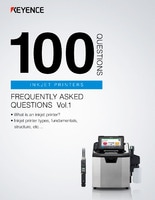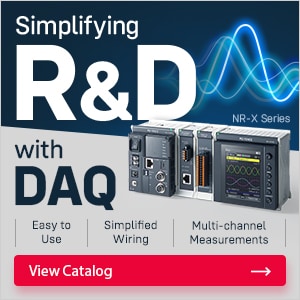Process improvement examples:
Handheld stamper / roller stamper comparison
Stampers that transfer quick-drying or water-based ink from type to a target are frequently used due to its low cost and simple operation. This section explains the differences between inkjet printers, handheld stampers, roller stampers, and other stamping equipment, as well as their advantages and disadvantages.
Problems with stampers
Printing with stampers must be done manually. This increases labor cost and chances of operator errors when change printing plates. Printing quality and speed also vary depending on each operator's skills.
On the other hand, printing with an inkjet printer can be easily controlled using a controller. This eliminates the need for manual work during printing, enabling high-speed printing and stable quality. In addition, printing can be verified using print inspection system to eliminate any printing errors.
Comparing stampers to inkjet printers
| Stampers | Inkjet printers | |
|---|---|---|
| Cost |
|
|
| Productivity |
|
|
| Quality |
|
|
| Management |
|
|

Inkjet printer application examples
Inkjet printing on kraft paper bags
-
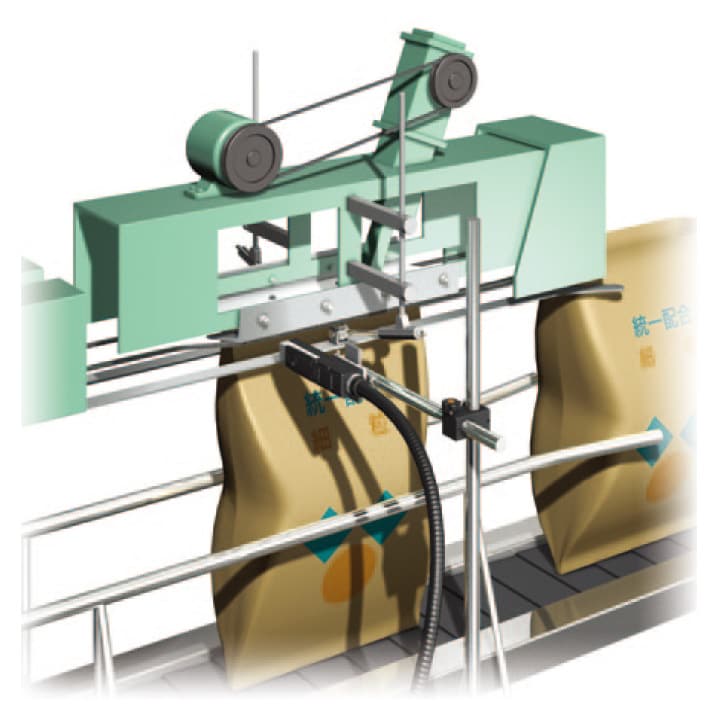
-
Large and clear characters are printed on bulk materials. The inkjet printer provides clearer printing without chipping or blurring when compared to roller-type stamps. We can offer a complete proposal, from methods to integrate with existing equipment, to printing positions and timing. KEYENCE's printer is also ideal for this type of application because of its dust proof qualities indicated by IP-55 rating it has been given. Fine particulate, such as those present in bulk materials, will not ingress into the printer due to its dust tight design.
Printing on beverage packages
-
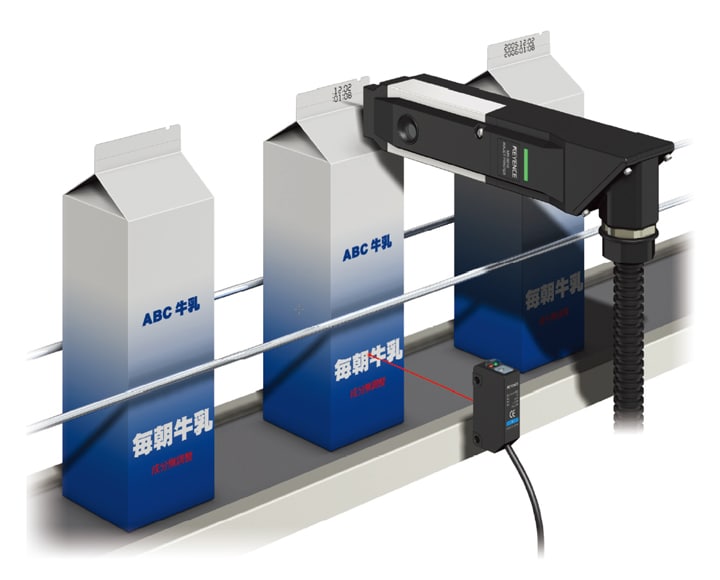
-
Inkjet printers can be easily installed for printing from the side on milk cartons and other beverage packages. While improving takt time is difficult with branding and stamping machines, the stable print quality provided by inkjet printers makes such improvements possible.
KEYENCE inkjet printers adopt an ink control function that allows the print head to be placed at a distance from the print surface without sacrificing print quality. Print heads can be installed at distances of 10 mm or 35 mm, ensuring high-quality printing on products with various shapes.
KEYENCE also offers a collection of measures to prevent shaking in tall products in addition to detailed information on installation procedures and sensor installation locations.
In addition, the direction of the head cable can be changed by 90 degrees, providing even greater freedom in cable management.
Dual-side printing on cardboard boxes
-
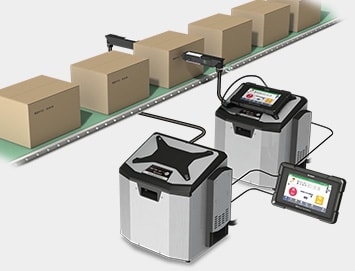
-
Dual-side printing can be performed by the inkjet printer for products that require printing on both sides. Changing print content for both sides simultaneously is easy and can be done using just a single touchscreen.
When compared to roller-type stamping machines, inkjet printers offer clearer printing with no missing or faded characters. The ability to adjust throw distance, which is not available with on-demand types, eliminates damages that could have occured from print head coming into contact with cardboard.
Printing on bottom of bottles
-
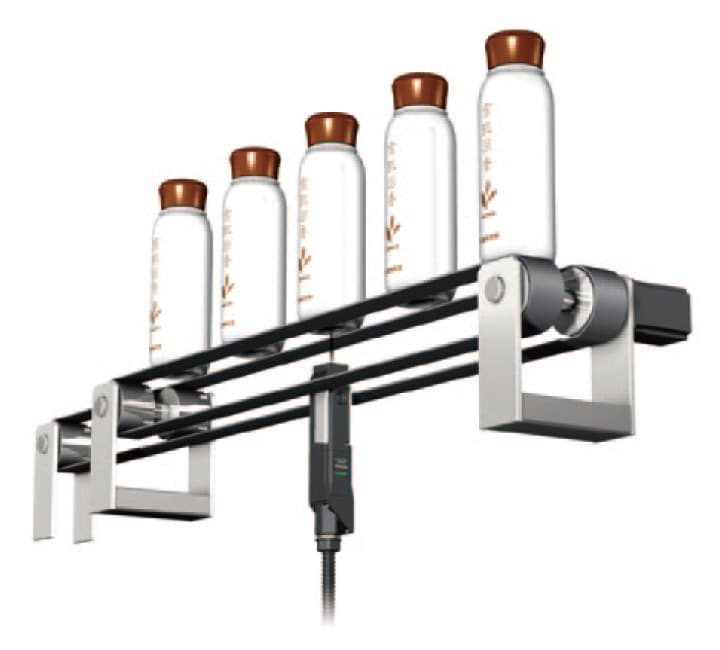
-
When printing on the bottom of bottles or other containers, the print head must be mounted at an upward position. KEYENCE Inkjet printer maintenance functions are used to proactively clean the print head, preventing clogging and ensuring stable operation. We can offer a complete proposal with specifications that are perfect for your worksites according to product sizes, conveyor lengths, and height of existing working table.

![Learn the Basics of Continuous Inkjet Printers [CIJ Central]](/Images/ss_products_inkjet_header_title_1785688.gif)



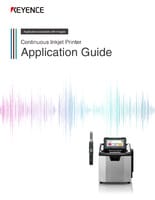
![Inkjet Printer Tech Guide [Basic Knowledge Edition]](/img/asset/AS_114378_L.jpg)
